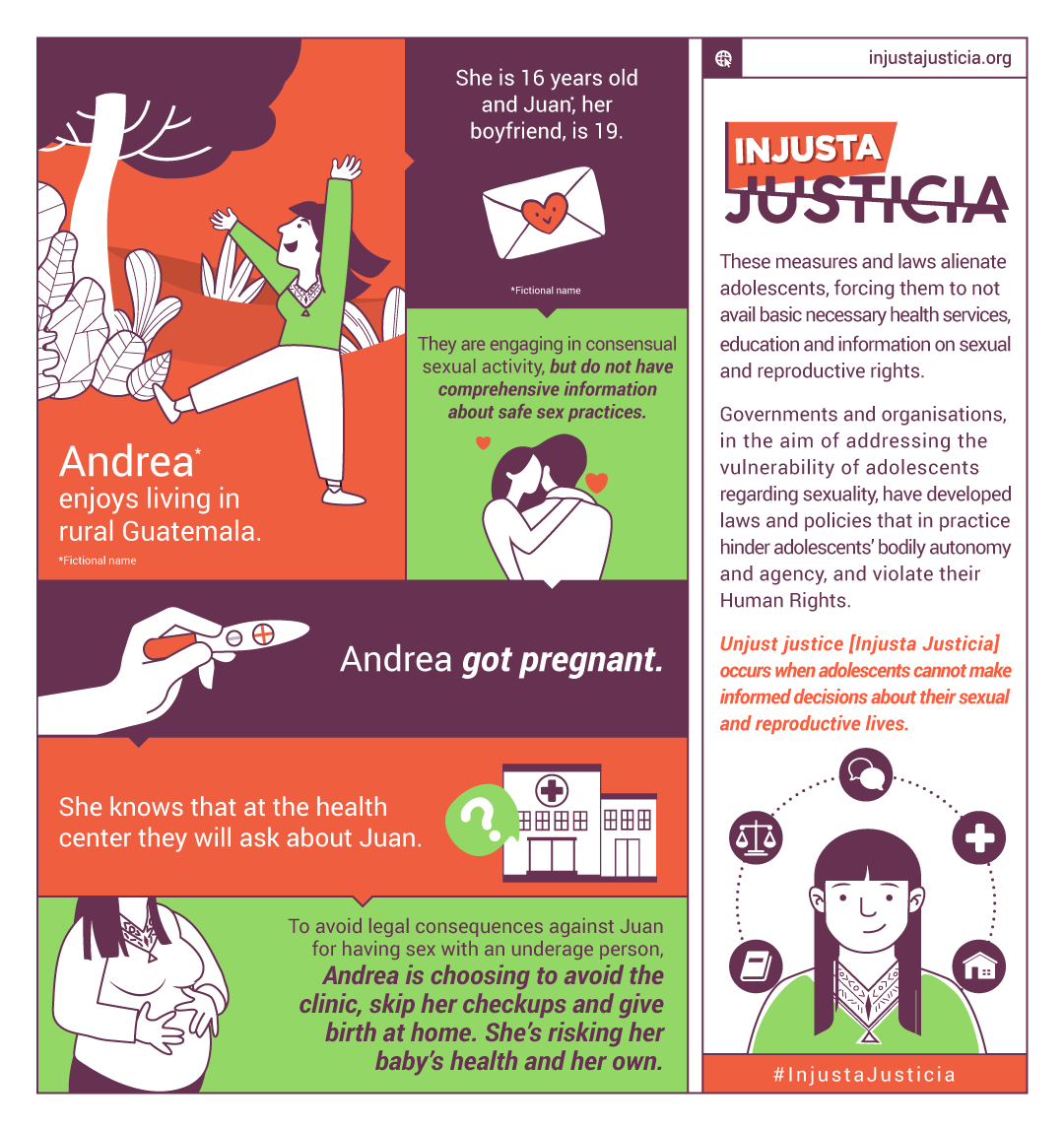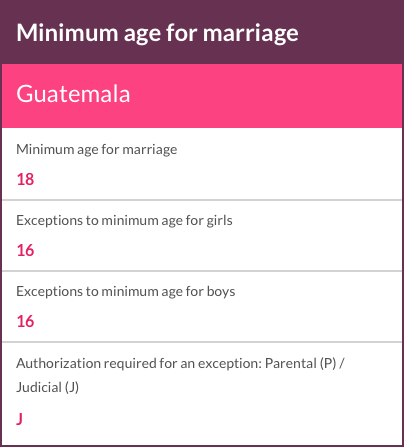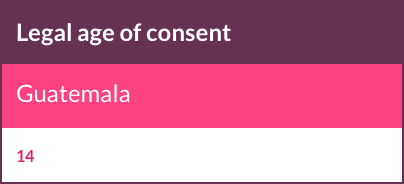Andrea
Click here to get a full description of the infographic.

In Guatemala, public hospitals and health centers have healthcare workers and staff from the prosecutor’s office and the civil register to expedite processes and protocols. Their presence is the reason why it has become usual for pregnant girls and adolescents to be forced by the public servants to declare who is the father of their child. In indigenous communities and rural areas in Guatemala, the presence of the prosecutor’s office in health centers is known. Andrea doesn’t want to have her checkups for this reason. Because she’s afraid of exposing Juan to the legal consequences of a criminal complaint, Andrea chooses not to resort to health centers to have prenatal care and give birth, putting her and her baby’s health at risk. This case is an example of how protectionist laws, although created with the best intentions of the state, can have other consequences such as stopping child and adolescent mothers from visiting health facilities.
Another related fact is that, in Guatemala, the National Registry of Persons (Registro Nacional de las Personas or RENAP, for its acronym in Spanish) has made it mandatory for newborns to be registered at the health center. This can have some consequences for child and adolescent mothers. On the one hand, the legal guardianship is automatically assigned to the parents or adults in charge of the girls or adolescents that became mothers, and this could leave them without a say on the upbringing of their children. On the other hand, the situation of dependency could be used to limit adolescents’ autonomy. This is the reason why it has become common for child and adolescent mothers to wait until they are of legal age to make the registration. Until then, their children do not exist in the eyes of the state and, among other serious consequences, will not have any access to public services such as health and education.
Child and adolescent mothers who prefer not to visit health centers – like Andrea – usually resort to a midwife. The state, however, has put up barriers for midwives to attend adolescents during childbirth, making the situation of vulnerability harder for them and their mothers. Cases such as Andrea’s in which child and adolescent mothers face multiple obstacles to register their children are common in a number of countries of the region.


-
It’s necessary to create and implement comprehensive sex education programs to address issues of sexuality while preserving adolescents’ progressive autonomy. Comprehensive sex education programs must include the parents and caretakers of adolescents to break down the stigma and taboo around sexuality. This would then prevent the misuse of the criminal procedure – such as the protocol for rape in this case – as “punishment” for the decisions made by adolescents about their sexuality.
-
States must modify the way they approach sexual and reproductive rights to leave practices that prioritize punitivism behind and focus on the wellbeing of girls and adolescents. Among other things, this would prevent girls and adolescents from avoiding public health services.
-
It is necessary for civil society organizations to deepen their discussions and work together thus strengthening the guarantee and exercise of girls and adolescents’ progressive autonomy.
-
In cases like these, the state must guarantee the legalization of guardianship for girls and adolescents, reducing barriers and avoiding further complications like those in Andrea’s case.
-
It is necessary to implement mechanisms so that girls and adolescents giving birth with midwives are able to register their children without obstacles in the process.
The Injusta Justicia campaign seeks to promote reflection on the limits of criminal law and punitivism as a defense strategy for sexual and reproductive rights, particularly those of adolescents. The campaign aims, among other things, to put the unforeseen consequences of the unrestricted application of criminal regulations and the impact this has on the autonomy and lives of adolescents under the spotlight. Injusta Justicia doesn’t have – or presume to have– all the answers but intends to inspire debate and to have the conversations we need as feminists to propose transforming strategies and alternatives focused on the survivors. We invite you to take part in this discussion.
Sexual and reproductive rights policy and regulatory framework in Guatemala:
Policies that could have an impact the lives of adolescents in the region: